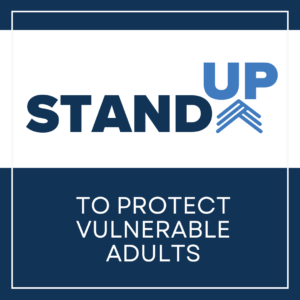A collision is the point where two forces make direct impact.
Ministry and compliance with state and federal requirements collide often, and consideration for both colliding factors is imperative. Child abuse is a high-risk ministry collision causing pain and potential liability for every organization and the children it serves. As abuse scandals are on the rise, legislators in many states are turning to the law to enforce new standards of care for minors. It is time for the Church to be proactive!
Most states have some sort of mandated reporting or child abuse and neglect reporting requirements, although some are more defined than others. (For more information on your state’s requirements, see https://mandatedreporter.com.)
Even if you are not required by law to report, the Church has a higher ethical mandate to care for those who can’t protect themselves. Ministries should create Child Protection Plans that not only encompass compliance with regulations but set the best standard of practices. Here are three simple ways to start:
- Create and use a Child Protection Plan that covers everything from check-in procedures to restroom policies to child/adult ratios. We at Church HR Network have teamed up with the Evangelical Council for Abuse Prevention to develop national standards for ministries.
- Train your employees and volunteers in child abuse identification and reporting so they know what to look for and how to handle it.
- Screen your employees and volunteers well by requiring a Live Scan fingerprint background check. Utilize a volunteer application and interview each person.
In addition to the practical steps above, a specific ministry area that carries potential for risk is communication with children. Any parent or children’s worker will tell you the main way kids communicate today is electronically: Tik Tok, text messages, Instagram messaging, and many other electronic communication platforms and apps. However, ministry leaders need to be cautious when communicating with anyone under the age of 18. Messages can be easily mis-interpreted or perceived incorrectly and emojis can be taken out of context. That’s why Church HR Network recommends creating standard operating procedures for communicating with minors.
First of all, ministries need to decide at what age you should communicate with a child rather than their parent. This is usually around 13 or 14 years old but may vary depending on ministry activities. Secondly, workers should consider whether they have parental consent to communicate with a child without involving the parent. Creating a consent process would provide a layer of protection for your ministry. Thirdly, once criteria for communication is established, no ministry leader should ever communicate as an individual. There should always be accountability partners on the messaging platform. Instead of sending a text directly to a minor, with parental consent you might send the text to the minor and a ministry accountability partner. The ministry accountability partner could be another staff member or adult volunteer. This ensures that you have proof of communication that occurred. Nothing is done in secret and someone else can attest to the information shared.
Shockingly, one in four girls and one in six boys will be sexually abused before the age of 18. Child abuse affects every socio-economic group and religion. As more and more ministries have long histories of child abuse revealed, we need to be change-makers! Protect your children and your ministry. Prepare now, establish prevention protocols, train your employees and volunteers, and identify reporting methods. Create policy so that staff know what is expected and children are protected.
Church HR Network offers several solutions to help you when ministry and compliance collide. Check us out at churchHRnetwork.com and email us at [email protected].





